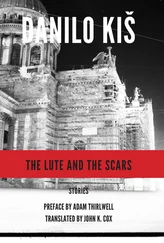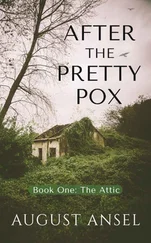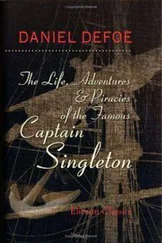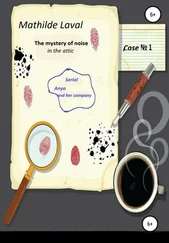Danilo Kiš - The Attic
Здесь есть возможность читать онлайн «Danilo Kiš - The Attic» весь текст электронной книги совершенно бесплатно (целиком полную версию без сокращений). В некоторых случаях можно слушать аудио, скачать через торрент в формате fb2 и присутствует краткое содержание. Год выпуска: 2012, Издательство: Dalkey Archive Press, Жанр: Современная проза, на английском языке. Описание произведения, (предисловие) а так же отзывы посетителей доступны на портале библиотеки ЛибКат.
- Название:The Attic
- Автор:
- Издательство:Dalkey Archive Press
- Жанр:
- Год:2012
- ISBN:нет данных
- Рейтинг книги:4 / 5. Голосов: 1
-
Избранное:Добавить в избранное
- Отзывы:
-
Ваша оценка:
- 80
- 1
- 2
- 3
- 4
- 5
The Attic: краткое содержание, описание и аннотация
Предлагаем к чтению аннотацию, описание, краткое содержание или предисловие (зависит от того, что написал сам автор книги «The Attic»). Если вы не нашли необходимую информацию о книге — напишите в комментариях, мы постараемся отыскать её.
Bildungsroman
The Attic — читать онлайн бесплатно полную книгу (весь текст) целиком
Ниже представлен текст книги, разбитый по страницам. Система сохранения места последней прочитанной страницы, позволяет с удобством читать онлайн бесплатно книгу «The Attic», без необходимости каждый раз заново искать на чём Вы остановились. Поставьте закладку, и сможете в любой момент перейти на страницу, на которой закончили чтение.
Интервал:
Закладка:
Our clothes were hung on hooks in the ceiling, exactly in the middle, where Venus’s vagina was to be found, having been sketched in there, in the shape of a shell and seaweed, by the marvelous imagination of the dampness. On these hooks protruding from Venus’s flesh were suspended Billy’s black velvet pants and my black ties, of which I had in those days approximately two hundred. On another peg hung a nylon bag in which we kept our toothbrushes, shoe polish, pomade, and shaving supplies. In one corner or in the middle of the room (it actually had no definite location) there was an old-fashioned rocking chair, with an already unraveling wicker seat, which stood us in good stead for philosophical conversations and daydreams. Whichever one of us was running amok at the moment used to rock in that creaking chair and utter Pythian prophecies and visions. A dull, cracked mirror hung a bit crookedly above the washbasin, which was made of the most diaphanous Chinese porcelain and reverberated with every word like a seashell.
“It isn’t actually a guitar,” I said.
“It’s not a guitar?”
“It’s a Renaissance lute,” I said. “You’re probably wondering. .”
“Oh!” she said, alarmed. “Something is crawling up my leg.”
“It’s nothing,” I said. “A mouse, for sure.”
“A mouse?!”
“Well, what else could it be? The snake’s already asleep.”
“Oh, God!”
“It’s over there, under the bell-jar by the books. We extracted all the poison from it. I brought it back from Ceylon,” I noted with pride.
“And what do you want with a snake?” she asked.
“Are you familiar with the legend of Orpheus? Of course you must know it.”
“He tamed wild animals with his songs,” she said, trembling.
I continued:
The boulders opened their portals before him, and the
Andes and Cordilleras bent their ears to hear.
“So where is this thing of yours, this. . Renaissance guitar?”
“Lute,” I corrected her.
“Okay, then. Lute.”
Then I opened the rusty little door for cleaning soot out of the stove, and a swarm of squeaking mice and rats came hurtling out.
She leapt onto the bed.
“Now, Eurydice, you are going to hear the song of Orpheus,” I said and struck up a tender arpeggio in a minor key.
I sang softly:
A rose petal your pillow will be,
and tulips your footsteps will mourn.
She sat with her legs folded beneath her and watched me — with fright or with amazement, I don’t know.
Then she said: “Look! Look!”
“Eurydice,” I said with pathos in my voice. “You can stretch out your legs.”
She was staring, dumbfounded, at the little iron door. With the dignity and discipline of ants or worker bees, a column of cockroaches was climbing up the wall toward the opening. They waited for the last mouse tail to be yanked in before continuing.
When the final bug had made its way up the wall, I clapped the iron door shut with my foot and started singing:
A rose petal your pillow will be,
and tulips your footsteps will mourn.
“Not now,” she said. “Not now, please.”
(That must have been later. At least one light-year later. I believe that the light from the star named Eurydice — which I caught sight of at that moment — set out on its journey on the day that I first beheld Eurydice, and I believe that her “no” at this moment meant that we needed to wait until the light of that encounter had reached us.)
“Fine,” I said. “The light has to ripen.”
“What kind of light?” she asked.
I explained it to her.
“How will we recognize it?” she asked.
“The summer declination will show up in your eyes. Can you imagine? Like when olives ripen overnight. It will be beautiful,” I said.
“Oh,” she said.
Suddenly her eyes grew dim, and dark pollen covered her lashes. The lute fell with a bang into the thin straw. It emitted a mellow chord of a type no one had ever heard. As though the fingers of twilight had strummed the strings.
Nothing could be further removed from my immediate ambitions than to write a romance novel. Although I feel that the whole business starts somewhere around there, after the caresses. I don’t want to make a tea set. I want to make crystal, as the wonderful Billy Wiseass would put it. That poor bastard has it good: he’s never experienced love. It’ll be easy for him to write a romance novel. If only he would give up stargazing. Nonetheless, Billy Wiseass, you will admit: it’s too cold out there amid the galaxies.
Or do you disagree?
When I sensed that I had pushed things too far, I said to her: “I have to go away. To Uganda. To Tanganyika. To Equatorial Africa. It doesn’t matter where. Far away.”
“Take me with you,” she said.
“What are you thinking. Dearest. My one and only.”
“Why are you lying?” she asked reproachfully.
“I swear!” I said. “Do you want me to prove it to you?”
“How?” she asked. “How?”
“I won’t leave.”
“Oh, that’s nice.”
“I’ll kill myself,” I continued.
She looked into my eyes. “If those are your only choices, then go. You must leave on your journey.”
So, my dear Billy Wiseass, for several light-years I was absent, ailing. I hope you won’t have changed so much since we last saw each other that you will be capable of asking me why I left, why I fled.
But you see, I have changed. I’ve become feeble-minded and several light-years older (I didn’t say wiser). And, as you can see, I’m posing this question to myself: Why? Why?
Wiseass, do you remember our vows in the attic? Our sage pronouncements? I’m ashamed that I let myself ask the question why . Did we not say: when you go too far, think of crystal and run away?
But that was all such a long time ago!
Personal experience in such matters is irreplaceable.
Do you recall, Billy Wiseass, how we wanted to become murderers just so that we could enrich ourselves by the experience? The problems started (do you remember?) when we figured out — you had already prepared the pistols — that if we acquired the experience of being murderers we would still be a long way from the experience of being murdered . (If in those days we had had the slightest flicker of belief in life beyond the grave, I know we would have killed ourselves.)
Lunatics. So much time had to pass before we realized that we could sell those pistols for good money and then pay the rent for the attic with it.
Once again, Billy Wiseass, you scold me for my egoism. You write: “It would be better if you wrote a novel in the style of Daphnis and Chloe or something like that,” in order to “liberate yourself from the first arson.” (Here apparently you slipped up and typed — I hope it wasn’t intentional—“from the first arson” instead of “from the first person.” So, what were you actually thinking: to liberate myself from the first-person form or from the first flame? Don’t forget to clear that up for me.)
Eh, bien! Let’s just say I am heeding your sage advice and I will satisfy your curiosity. So send me the exact number of rats, mice, and cockroaches that were in the attic on the day (which day was it?) of our meeting. I only remember that you found some pretext to leave the room. And be sure to send me the prototype of the woman I’m supposed to describe “in the style of Daphnis and Chloe ,” as you put it.
But don’t forget: if Chloe is Eurydice, then I must be Orpheus!
Oh, and I haven’t made any progress at all on the lute.
Think it all over carefully!
P.S. Your presence in this poem about love bothers me, but I can’t avoid mentioning you here and there. Of course I will be considerate and will refrain from describing you. (Haven’t I already betrayed you that way once?) It is more than enough that I have to keep cropping up as “I” from page to page, as if I were some imaginative concoction or confabulator. 1Or a phantom.
Читать дальшеИнтервал:
Закладка:
Похожие книги на «The Attic»
Представляем Вашему вниманию похожие книги на «The Attic» списком для выбора. Мы отобрали схожую по названию и смыслу литературу в надежде предоставить читателям больше вариантов отыскать новые, интересные, ещё непрочитанные произведения.
Обсуждение, отзывы о книге «The Attic» и просто собственные мнения читателей. Оставьте ваши комментарии, напишите, что Вы думаете о произведении, его смысле или главных героях. Укажите что конкретно понравилось, а что нет, и почему Вы так считаете.












